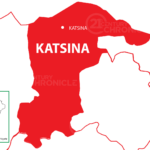The Covid-19 pandemic that brought the world to its knees was one of the greatest challenges witnessed by mankind in recent times. In my opinion, it is the hypothetical World War III, the world is afraid of. Unarguably, the impact of which we are yet to fully recover from it. At the outset it was shrouded by controversies of mythical proportions. Not only the laymen, even the scientific and medical fraternities were not spared from the needless debate of it being a hoax. With the success of the Covid-19 vaccines and massive reductions in deaths and hospitalisation, this has put to rest the arguments of the naysayers.
The novel Coronavirus has crippled the world economy in no small measure. It has put several businesses in extinction, menial and casual workers losing their sources of livelihoods and deprivation of school children to education were some of the most glaring impacts. On the other hand, the global pandemic had opened a new vista in almost every facet of our lives. One area that this change is noticeable is the ICT. No one could have imagined hitherto that workers could transitioned rapidly to the hybrid working system which has now been normalised.
Going back to the health sector. The pandemic should afford us some time for reflection and review of what is going on with our health policy. The Federal Government through the Nigerian Centre for Disease Control performed creditably well in containing the spread of the virus. On the flip side of it, the health performance indices of Nigeria are adjudged to be one of the poorest in Sub Saharan Africa, thanks to under-5 mortality, maternal mortality, Malaria and other childhood diseases to mention but few. To be more specific, a World Bank data in 2020 put it that 1 out of 9 children die before their fifth birthday in Nigeria, which is the worst in Sub Saharan Africa; comparable only to a war-torn Somalia. In the same breath, 1 out of every 4 deaths of Malaria in the world is in Nigeria as reflected in WHO “World Malaria Report 2019”. These numbers are grossly unacceptable and is enough to trigger goosebumps to any discerning mind, health care authority and government. We are in a brink of total health collapse and everything humanly possible should be done to salvage the system.
Humongous number of resources both financial and non-financial have been expended since the outbreak of the Covid-19, a disease with much lower mortality and morbidity in comparison to tropical diseases such as Malaria. This partly fuelled the conspiracy theory(ies) regarding the disease initially. Government must show the same aggression and vigour to tropical diseases ravaging our precious population as they are doing with Covid-19. One might be tempted to ask whether it is not time for us to recalibrate these policies to reflect domestic realities in addressing these recurring health challenges.
Is Bello the new Prince of the Niger?
Obasanjo, the letterman, strikes again
As we approach the 2023 elections, where expectedly leaders would be elected at various levels. We must be serious in the business of governance. This can be done by asking the hard questions from our politicians on how they intend to upturn these statistics. Political office seekers should steer clear of the rhetorical and generic cliché of improving health or pumping money into health when asked as to what they would do with healthcare. They should give us objectives that is SMART in a strict managerial sense. We must demand for actionable and realistic plan in getting out of this quagmire. For instance, States and LG should not only staff Primary Health Cares (PHCs) and General Hospitals with essential medications but should do that that to the vulnerable populations at a subsidised rate. This is because Health access by all conventions is a right and should be borne from the public purse. They should provide us with a realistic, workable and sustainable ways of funding this. Anyone incapable of discharging this public obligation has no business seeking our votes come 2023.
With the staring numbers of burden of malaria in Nigeria, the Government at the centre should as a matter of urgency declare it as an emergency. It is a disease worthy of prioritisation; we should lead the world in the development of its vaccine because we are the country that is worst affected by it. In addition, the available antimalarial medications are gradually losing their effectiveness due to resistance. It is our challenge and we don’t expect someone to remove the log from our eyes. We have seen how industrialised countries heavily invested in the COVAX scheme and how within a short period stem the tide of the virus. The Nigerian Government should lead the world in ending this by investing heavily in Malaria vaccine as a short-term goal. This is doable!
Dr Garba is of the Arewa Renaissance Group and can be reached at [email protected]
 Join Daily Trust WhatsApp Community For Quick Access To News and Happenings Around You.
Join Daily Trust WhatsApp Community For Quick Access To News and Happenings Around You.



